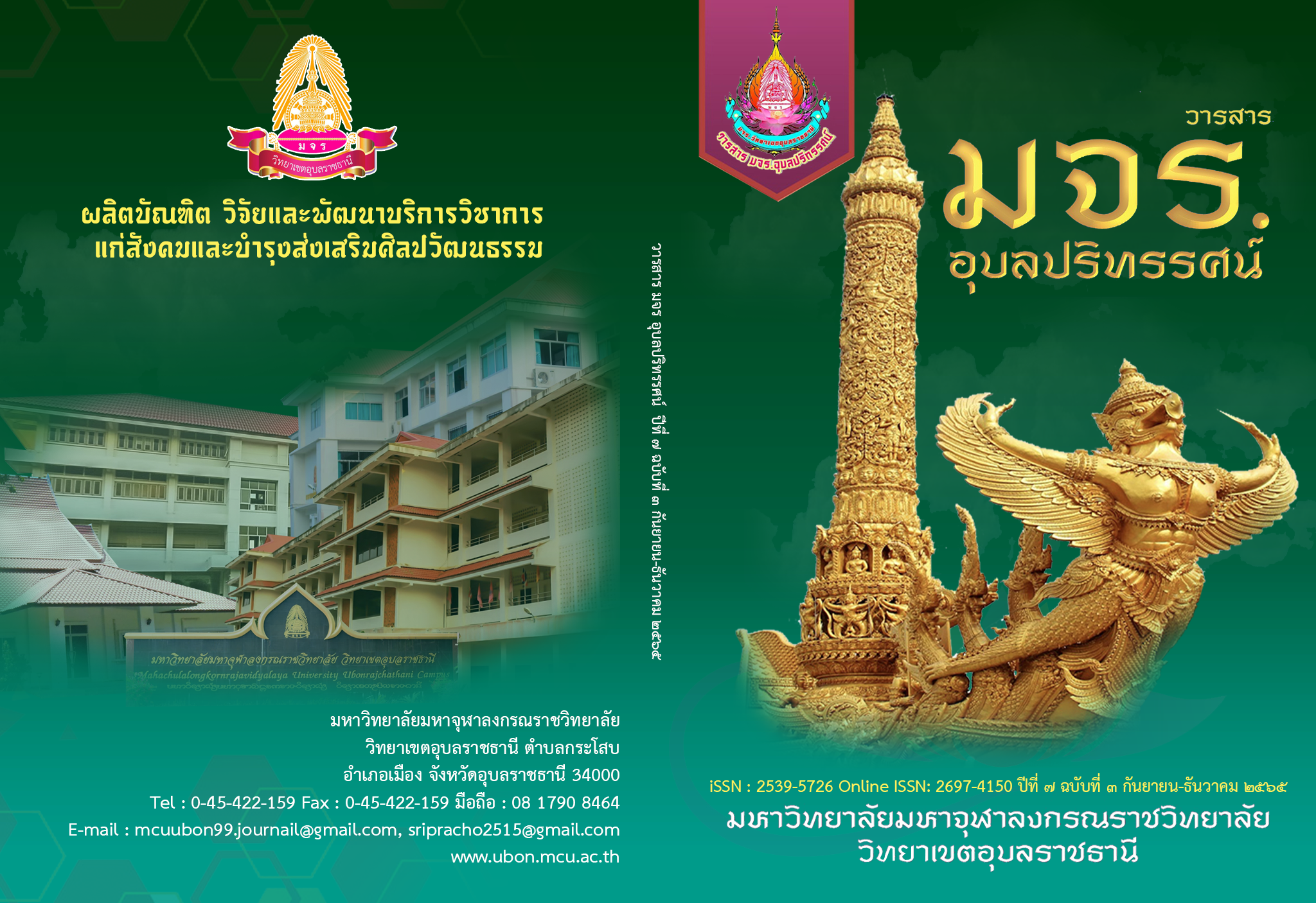ความคาดหวังของผู้ใช้บริการที่มีต่อคุณภาพบริการสาธารณะ ของโรงพยาบาล
Main Article Content
บทคัดย่อ
งานวิจัยนี้มีวัตถุประสงค์วิจัยเพื่อศึกษาความสัมพันธ์ขององค์ประกอบคุณภาพบริการสาธารณะของโรงพยาบาลประจำอำเภอ จังหวัดสุรินทร์ โดยผู้วิจัยพัฒนาแบบสอบถามขึ้นจากการทบทวนวรรณกรรมและนำไปเก็บรวบรวมความเห็นจากกลุ่มตัวอย่างที่เป็นประชาชนที่เคยใช้บริการของโรงพยาบาลมาก่อนแล้วจำนวน 784 คน สถิติที่ใช้ในการวิเคราะห์ผล ได้แก่ ร้อยละ ความถี่ ส่วนเบี่ยงเบนมาตรฐาน การวิเคราะห์ความแปรปรวน และสัมประสิทธิ์สหสัมพันธ์ ผลวิจัยพบว่า กลุ่มตัวอย่างที่มีปัจจัยส่วนบุคคลด้านอายุ การศึกษา อาชีพ รายได้และการเคยใช้บริการจากโรงพยาบาลที่ต่างกัน จะมีความเห็นเกี่ยวกับคุณภาพ บริการสาธารณะแตกต่างกันอย่างมีนัยสำคัญทางสถิติ มีค่า F ที่ 6.29 (Sig. 000) นอกจากนี้ องค์ประกอบคุณภาพบริการสาธารณะมีความสัมพันธ์ไปในทิศทางเดียวกันต่อความคาดหวังของผู้ใช้บริการอย่างมีนัยสำคัญทางสถิติที่ระดับ .01
Article Details
เอกสารอ้างอิง
กัญญ์สิริ จันทร์เจริญ. (2554). บทที่ 5 การกำหนดประชากรและกลุ่มตัวอย่าง, https://www.ict.up.ac.th/surinthips/ResearchMethodology_2554....PDF
บุญศรี พรหมมาพันธุ์. (2561). เทคนิคการแปลผลการวิเคราะห์ข้อมูลสำหรับการใช้สหสัมพันธ์ และการถดถอยในการวิจัย, วารสารศึกษาศาสตร์ มสธ, 11(1), 32-45.
ประสพชัย พสุนนท์. (2557). ความเชื่อมั่นของแบบสอบถามในงานวิจัยเชิงปริมาณ, วารสารปาริชาต มหาวิทยาลัยทักษิณ, 27(1), 144-163.
ปรียานุช อภิบุณโยภาส. (2015). การวิเคราะห์องค์ประกอบเชิงสำรวจในการวิจัยองค์การ, วารสารการจัดการสมัยใหม่, 13(2).
วีระศักดิ์ จินารัตน์ (2564). ระเบียบวิธีวิจัยสมัยใหม่ (Modern Research Methodology).
อุบลราชธานี: สำนักพิมพ์ยงสวัสดิ์อินเตอร์กรุ๊ป
วีระศักดิ์ จินารัตน์. (2564). มาตรฐานงานวิจัยเชิงปริมาณและการพัฒนา, พิมพ์ครั้งที่ 1; อุบลราชธานี, ยงสวัสดิ์ อินเตอร์กรุ๊ป จำกัด.
สมบัติ ท้ายเรือคำ. (2558). การพัฒนาแบบสอบถามและแบบวัดทางจิตวิทยา, วารสารวิจัยเพื่อพัฒนาสังคมและชุมชน มหาวิทยาลัยราชภัฎมหาสารคาม, 3(1), 35-48.
Akbar, M.M. & Parvez, N.B. (2009). “Impact of service quality, trust and customer satisfaction on customers’ loyalty”, ABAC Journal, 29(1), 24-38.
Ariffin, H.F., Abdullah, R.P.S.R, & Bibon, M.F. (2012). Assessing service quality: prayers
perspec tive. Proced Soc Behav Sci 2012; 36: 511-9.
Dufy, J.A.M. & Ketchand, A.A. (1988). Examining the role of service quality in overall
service satisfaction. Journal of Marketing Issues, 10(2), 240-255.
Eagly, A.H. & Chaiken, S. (1993). The Psychology of Attitudes. 1st ed., Cengage
Learning.
Elwell, T.L., Gelcich, S., Gaines, S.D. & López-Carra, D. (2018). Using people's
perceptions of ecosystem services to guide modeling and management efforts. Science of the Total Environment 637–638 (2018) 1014-1025.
Leigh, A. (1983). Making decisions in the public sector. Person Manage 1983; 15 (12):
-31.
Lepmets, M., Cater-steel, A., Gacenga, F. & Ras, E. (2012). Extending the IT service
quality measurement framework through a systematic literature review. Journal of Service Science Research, 4(1), 7-47.
Nadiri, H. & Hussain, K. (2005). Perceptions of service quality in North Cyprus hotels.
International Journal of Contemporary Hospitality Management, Vol. 17 No. 6, pp. 469-480
Parasuraman, A., Berry, L.L. & Zeithmal, V.A. (1991). Refinement and reassessment of the servquel dimension. Journal of Retailling, 67(4), pp. 420-450.
Parasuraman, A., Berry, L.L. & Zeithmal, V.A. (1988). Servqual: A Multiple-item scale for measuring consumer perc. Journal of Retailing, 64 (1), 12.
Qin, H. & Prybutok, V.R. (2008). Determinants of customer-perceived Service quality in fast-food restaurants and their relationship to customer satisfaction and behavioral intentions. The Quality Management Journal, 15(2), 35-50.
Tan, K.C., & Pawitra, T.A. (2001). Integrating SERVQUAL and Kano's model into QFD for service excellence development


